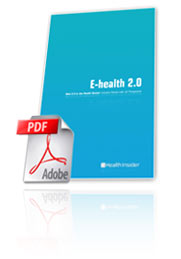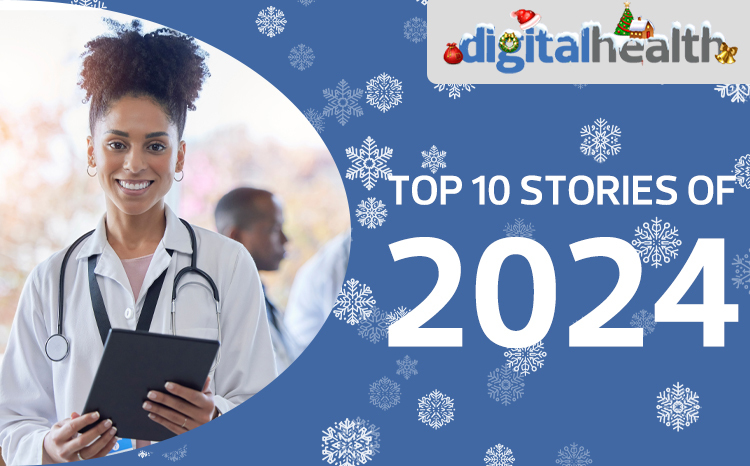E-health 2.0: health’s consumer revolution
- 20 May 2008
 E-Health Insider’s new report ‘Web 2.0 in the Health Sector’, concludes that new online applications based on social health networks, participation and user generated content (UGC) – such as user reviews of doctors and hospitals – will rapidly evolve to challenge existing healthcare systems and create new delivery models.
E-Health Insider’s new report ‘Web 2.0 in the Health Sector’, concludes that new online applications based on social health networks, participation and user generated content (UGC) – such as user reviews of doctors and hospitals – will rapidly evolve to challenge existing healthcare systems and create new delivery models.
The report details how the application of web 2.0 technologies is now driving far-reaching changes in healthcare systems in the UK, USA and Europe, a trend it terms e-health 2.0. Twenty leading companies from around the world are profiled in the report.
Our research suggests that those who ignore the deep trends of e-health 2.0 risk missing the early stages of a social, economic and technological tectonic shift in healthcare planning and delivery. If this sounds overblown, it’s worth remembering what changes have already occurred in other consumer industries.
Placing consumers in the driving seat
Web 2.0 has revolutionised service industries, such as banking and travel, creating consumer-facing tools that help put the customer in the driving seat. For example, consumers are able to view their bank account status and transact online. In travel many not only shop and buy online, but may only choose to book a holiday or hotel after reading online reviews. In response, these service industries have seen a surge in online activity. Today’s consumers want the right information, at the right time with minimal effort.
Though more complex and important to individuals, healthcare is no different. Health is a service-based industry, which has been slow to digitise, but is now experiencing a dramatic shift in how information – ranging from official clinical outcomes data to users’ perceptions of services – is originated, handled and used.
Healthcare consumers are demanding a more personalised healthcare delivery model. Thanks to a diverse range of new online tools and services, some consumers are finally beginning to take more control of their healthcare. Our research suggests we are at the early stages of a consumer trend that has the potential to quickly gather momentum.
What is web 2.0?
Web 2.0 technologies take the form of social networks, RSS feeds, mashups and wikis, to name a few. These technologies and tools have catalysed a surge in online activity where even novice internet users can post feedback. The UGC accumulated from these sites has the potential to create rich repositories to inform the industries they serve.
As the online user experience becomes more person-centric, so too will the industries that use this medium as a vehicle to connect and transport information from institution to end user and vice versa. The health industry, in particular, has already begun to realise the benefits of employing consumer-facing tools.
E-health 2.0 in action
The trend we term ‘e-health 2.0’, is not just hype as it is already in motion. Although many trailblazers have come from the US West Coast, Europe is also providing imaginative responses. The UK in particular has some ambitious public and private initiatives based on web 2.0 approaches.
NHS Choices
NHS Choices, a digital health service that seeks to provide a direct interface between the UK public and the NHS, launched in June 2007. The service offers its users video clips, interactive tools, daily news service and lifestyle features.
As a personal health manager and social network for health, this service demonstrates the Government’s investment and keen interest in engaging with UK healthcare consumers. As the patient choice agenda continues gain momentum, NHS Choices may prove an invaluable resource for patients, carers, family members as well as providers of health and social care services.
Microsoft HealthVault
In the US Microsoft has launched its HealthVault platform, designed to put consumers in control of their data. HealthVault is designed as a health organiser to enable users to collect, store and share their health information only with those granted permission. Through partnerships and commercial agreements, HealthVault facilitates connections with third party applications and devices.
Google Health
As EHI reports this week a similar personal health record (PHR) initiative has now been launched by internet search giant Google, an initiative that combines the concepts of a PHR with UGC as well as powerful search tools and connectivity with clinical details from a range of healthcare providers.
What does this mean? The involvement of corporate giants like Microsoft and Google in healthcare consumerism should provide a wakeup call for all healthcare organisations. Online participatory technologies are helping to accelerate shifts in healthcare, away from a traditional, disease-led model to one that is patient-centric and increasingly consumer driven.
Shift from institution to individual
As industry leaders put to market more interactive, consumer-facing applications, patients are able to play a more active role in their healthcare. This shift of responsibility – away from the institution and towards the individual – has huge implications for healthcare systems around the world.
And though it’s the likes of Microsoft, Google and the NHS that most often capture the headlines, many of the most innovative developments come from small start-ups pioneering e-health 2.0. E-Health Insider’s new report profiles a cross-section of these leaders and innovators.
To better understand this emerging trend in e-health and how organisations can incorporate the concepts and technologies into their own strategy, E-Health Insider has produced ‘Web 2.0 in the Health Sector: Industry Review with UK Perspective’.
Click here to purchase your digital copy of the report
or download a free executive summary.
To enable registered readers to sample the research for free, we are offering one of the 20 profiles included in the report to download at no charge.





